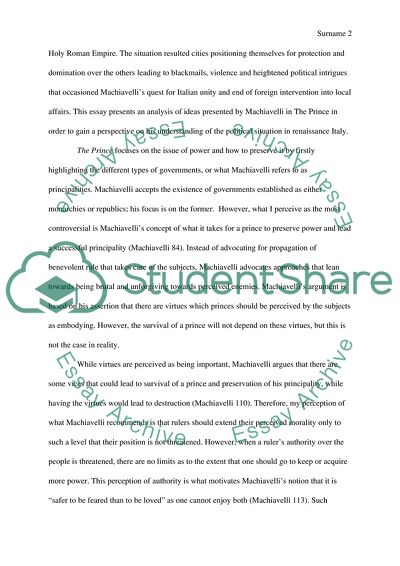Cite this document
(“Analysis of the text The Prince by Machiavelli Essay”, n.d.)
Analysis of the text The Prince by Machiavelli Essay. Retrieved from https://studentshare.org/social-science/1664439-analysis-of-the-text-the-prince-by-machiavelli
Analysis of the text The Prince by Machiavelli Essay. Retrieved from https://studentshare.org/social-science/1664439-analysis-of-the-text-the-prince-by-machiavelli
(Analysis of the Text The Prince by Machiavelli Essay)
Analysis of the Text The Prince by Machiavelli Essay. https://studentshare.org/social-science/1664439-analysis-of-the-text-the-prince-by-machiavelli.
Analysis of the Text The Prince by Machiavelli Essay. https://studentshare.org/social-science/1664439-analysis-of-the-text-the-prince-by-machiavelli.
“Analysis of the Text The Prince by Machiavelli Essay”, n.d. https://studentshare.org/social-science/1664439-analysis-of-the-text-the-prince-by-machiavelli.


